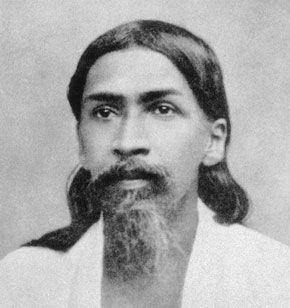Sri Aurobindo: The Philosopher, Poet, and Revolutionary
Overview: Sri Aurobindo Biography
“7 Transformative Teachings of Sri Aurobindo Biography to Inspire Your Life” Sri Aurobindo (1872–1950) was a renowned Indian philosopher, poet, yogi, and freedom fighter whose transformative teachings continue to inspire millions. Known for his integral yoga and visionary writings, Sri Aurobindo emphasized the evolution of human consciousness and the realization of the divine in all aspects of life. His legacy is deeply intertwined with India’s spiritual and nationalist movements.
Sri Aurobindo Biography
Born on August 15, 1872, in Kolkata (then Calcutta), India, Aurobindo Ghose was the son of Dr. Krishna Dhan Ghose and Swarnalata Devi. Educated in England from a young age, he excelled in classical literature and developed a profound understanding of Western philosophy. He returned to India in 1893, where he became involved in the Indian independence movement, advocating for complete self-rule.
His revolutionary activities, including writing for nationalist publications and leading protests, made him a prominent figure in the freedom struggle. However, after a mystical experience during his imprisonment in 1908, Sri Aurobindo shifted his focus toward spirituality.
He settled in Pondicherry (now Puducherry) in 1910, where he dedicated his life to spiritual practice, teaching, and writing. Sri Aurobindo’s philosophical and spiritual vision found expression in works like The Life Divine, Savitri, and Essays on the Gita. He passed away on December 5, 1950, leaving behind a profound legacy of spiritual and intellectual contributions.
Key Teachings: Sri Aurobindo Biography
- Integral Yoga: Sri Aurobindo’s philosophy of integral yoga emphasizes the synthesis of physical, mental, and spiritual growth to achieve divine consciousness.
- Evolution of Consciousness: He taught that human life is an ongoing evolution, with the potential to transcend the ego and manifest divine consciousness.
- Divine in Life: Aurobindo believed in realizing the divine in all aspects of life, integrating spirituality with worldly existence.
- Unity of Existence: He emphasized the interconnectedness of all beings and the unity of creation.
- Spiritual Nationalism: Sri Aurobindo saw India’s freedom struggle as part of a larger spiritual awakening for humanity.
Daily Life Impacts: Sri Aurobindo Biography
Sri Aurobindo’s teachings inspire individuals to:
- Cultivate Self-Awareness: Practice mindfulness and meditation to develop inner clarity and peace.
- Seek Holistic Growth: Integrate physical, emotional, and spiritual development for a balanced life.
- Embrace Universal Love: Recognize the divine essence in all beings and act with compassion.
- Transform Challenges: View obstacles as opportunities for growth and spiritual evolution.
Historical Significance: Sri Aurobindo Biography
- Indian Independence Movement: Sri Aurobindo’s writings and leadership inspired a generation of freedom fighters.
- Spiritual Pioneer: His teachings bridged Eastern and Western philosophies, influencing global thought.
- Philosophical Contributions: Works like The Life Divine and Savitri remain cornerstones of modern spiritual literature.
Lesser-Known Facts: Sri Aurobindo Biography
- Poetic Genius: Sri Aurobindo’s epic poem Savitri is one of the longest poems in English literature.
- Visionary Experiences: His spiritual awakening during imprisonment profoundly shaped his teachings.
- The Mother’s Role: Mirra Alfassa, known as The Mother, was his spiritual collaborator and played a key role in establishing the Sri Aurobindo Ashram.
- Advocate for World Unity: Aurobindo’s vision extended beyond India, promoting global harmony and peace.
Frequently Asked Questions (FAQs)
Q1: What is Integral Yoga?
Integral Yoga is a spiritual practice that seeks to harmonize all aspects of life—physical, mental, emotional, and spiritual—to achieve divine consciousness.
Q2: Why is Sri Aurobindo significant in Indian history?
He was a leading figure in India’s freedom movement and a profound spiritual teacher whose ideas continue to influence philosophy and spirituality.
Q3: What is The Life Divine about?
It is a philosophical work that explores the evolution of human consciousness and the realization of the divine in life.
Q4: How is The Mother connected to Sri Aurobindo?
The Mother, Mirra Alfassa, was his spiritual collaborator and co-founder of the Sri Aurobindo Ashram in Pondicherry.
Significance: Sri Aurobindo Biography
Sri Aurobindo’s teachings offer a comprehensive framework for personal and societal transformation. By integrating spirituality with practical life, he provided tools for individuals to achieve their highest potential. His vision of human evolution as a spiritual journey continues to inspire seekers worldwide.
Observance and Celebrations
- Birth Anniversary (August 15): Celebrated with meditation, prayers, and readings from his works.
- Mahasamadhi Day (December 5): Observed in remembrance of his teachings and contributions.
Wishing for Aurobindo’s Vision in Society
Sri Aurobindo’s emphasis on unity, self-awareness, and spiritual progress offers a roadmap for addressing contemporary challenges. His call for a holistic approach to life reminds society of the need to balance material pursuits with spiritual growth.
Key Points at a Glance: Sri Aurobindo Biography
- Born: August 15, 1872, in Kolkata, India.
- Philosophy: Integral yoga and spiritual evolution.
- Legacy: Revolutionary turned spiritual leader.
- Milestone: Founder of the Sri Aurobindo Ashram.
- Celebration: Birth and Mahasamadhi anniversaries observed globally.










